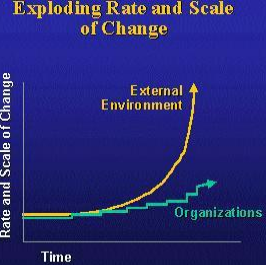
|
|
Body and soul 1Every so often I get lost in the fog. More so now that I am an old fogey. What did I have in mind? Yes, honourables and the not so. 3 Moving on from my previous story, about cabaret and bal masqué: Elsie, to my mind, is not altogether unlike many a politician, here and elsewhere, who rents his soul to a Mephisto of sorts in stretches of four years. Let's give this some thought. 5 * * *
In 2013, media stories about Senate scandals led me to dig a little into what our Senate is about and the work senators do. Notes I took led me to write an "ongoing" essay. With "ongoing" I mean continually revising as a learned more over time. I have not touched the essay for some time now, but what I have come up with after about six years can ls and be found by clicking here. I avoided touching on the scandals and tried to avoid personal bias. 6 Whatever the senators are engaged in, our Senate was—is?— primarily perceived as a chamber of sober second thought about whatever legislation parliament comes up with. The term "second thought" disturbed me. It shouldn't at first have missed the exact context, but at a time of an accellerating pace of change in what happens globally I think that foresight should be a primary role, and publicly perceived as a primary role. 7  A picture of danger ahead we do well to imprint on our minds: accelerating rate of change that affect mankind globally (in yellow) as compared to the scale of governments' attempts at keeping up (in green). (Ref..) 8 Disturbing me also was the political divide, conservatives versus liberals. One must wonder how our Senate could possibly be considered a chamber of second sober thought with opposing members getting hot under their political collars. It was heartening therefore that, in 2016, a newly elected Liberal government established an Advisory Board on Senate Appointments, which was touted to be politically independent. This happened not long after the party's leader had done away with the Senate's Liberal caucus. Nevertheless, empty Senate seats are still filled with people selected by the Prime Minister from a short list put together by the Board, which itself follows rules laid out by the Prime Minister's Office. 9 Conservative senators maintained their caucus. Their power became publicly evident when they expelled a senator from their ranks for not following a party dictate. Or, as I might put it, for not selling himself wholeheartedly to the party. Here is the rub. What should be our senators' priority? Their party or our country? The evidence is not reassuring, especially not at this time of life-threatening threats, and other major threats, in the offing. 10 Last time I looked, Conservatives insisted that Senate debates should be adversary. A justification of sorts is that the truth will well up somewhere in the midde. I doubt that minds ever engaged in any of the natural sciences will ever accept this. The solving of difficult and highly integrated problems calls for co-operative thinking. Truth is our Senate is severely handicapped by a lack of those minds and the necessary leadership to integrate their thinking. I am inclined to believe that a degree of social/intellectual arrogance is a factor. 11 The claim that our senators' collective experience is representative of Canadian society at large is bogus. And bogus not only along an intellectial dimension, but bogus also along a social dimension, the layering from the under-privileged, through strata of the middle class to the "cream" of the upper classes and a shying away of higher-ups from the moccasins of the lower classes; something I have observed and felt in my youth, more than seven decades upstream in the turbulent flow of time. 12 I have suggested, tentatively, a way out of this conundrum. It is no longer necessary for senators to gather in one room to have a discussion. It isn't even necessary for a discussion to take place within a brief, stipulated time-frame for all participants. I went over this years ago in my essay about our Senate, under the heading "Optimizing effectiveness: Digital collaboration." This provides an enhanced opportunity for our Senate to be in continued direct contact with the full range of Canada's social spectrum, as also discussed in the essay, beginning here with a quote from John A. Macdonald: A victim of the Senate scandals was Senator Mike Duffy. It was in 2016, after years of being subjected to public degradation, that Justice Charles Vaillancourt of the Ontario Court of Justice acquitted him from all 31 charges about breach of trust, fraudulent practices, and accepting a bribe. He wrote that the then Prime Minister's Office (under Conservative leader Mike Harper) "treated Senators as 'pawns' and describe Duffy as just another 'piece on the chessboard'." "The political, covert, relentless unfolding of events is mind-boggling and shocking," he wrote. (Source). 14 Something worth mentioning here appeared in the Globe and Mail of November 9, 2013: "... financial disclosure statements show 46 of 99 senators have other jobs.... lawyers, a doctor and various private business owners. ... Five senators have, on at least one occasion, skipped a Senate sitting day for annual board meetings ..." 15 People are people are people. Figures like Albert Schweitzer and Mother Theresa are few and far between. We have lives to live, we have personal responsibilities, we have bills to pay, we wish to maintain our social connections, we need to keep our sanity, we forget—presumably driven by a psychology of avoidance ("a maladaptive coping mechanism characterized by the effort to avoid dealing with a stressor." Climate change, picking an example). 16
|
--
| top of page |
|
